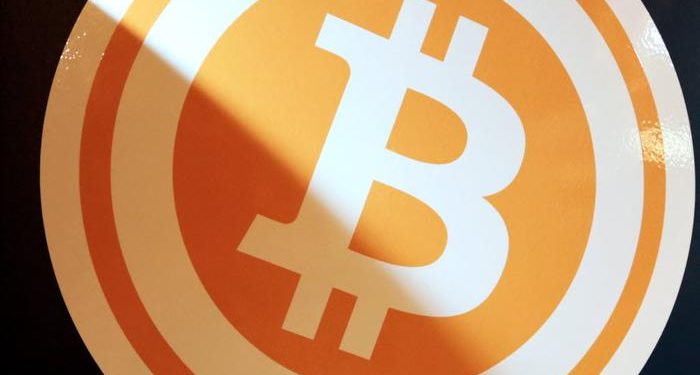Fancy a treasure hunt? Bitcoin maps have you, and your crypto, covered.
For many crypto-enthusiasts, Bitcoin is more than just a convenient type of digital currency. It’s a symbol of a fully democratized financial system. Once in which there are no borders, funds can be transacted quickly and cheaply, and there is no centralized authority to gum up the works. Because of this, Bitcoin values aren’t subject to inflationary practices, or massive administration fees. There is no waiting period, you don’t need utility bills, background checks, or credit checks to buy. You just provide the money, and bitcoin will provide the coin.
Bitcoin protects its users with inherent “pseudo-anonymity”, which is just a really fancy way of saying it’s much more private than your standard bank account. Depending on what type of platform you use to get bitcoin, this will dictate how much personal information you’ll need to supply to get it. There are three major ways of securing yourself some of the world’s most popular crypto: Going through a trusted Axitrader forex brokers, using a peer-to-peer network, or finding a bitcoin ATM.
Peer-to-peer networks are a great way to get Bitcoin, but there are no guarantees here that you will actually receive what you pay for– so you’ll need to be diligent when it comes to choosing a platform. Trusted exchanges like Bitvavo are fantastic for first-time users. Especially as they can help retail investors learn how to best navigate the market. But for the true crypto aficionado- you’re going to want to use a Bitcoin Map and find yourself the nearest Bitcoin ATM.
What is a Bitcoin Map?
A Bitcoin map is essentially your go-to guide for finding the bitcoin ATMs nearest to you. But in order to really understand why you need a Bitcoin map and exactly what it is that makes them so magical– you’re going to need to know a bit about Bitcoin ATMs themselves.
Bitcoin ATMs function similarly to the Automated Teller Machines that we’re all familiar with. You know, those mammoth monsters that you put your bank card into and suddenly cash appears? Well, Bitcoin ATMs work largely in the same way, except you use your credit or debit card to purchase bitcoin. It’s also important to note that different types of Bitcoin ATMs do different things.
The two main types of Bitcoin ATMs are unidirectional machines and bidirectional machines. With unidirectional, users can only use the machine to purchase bitcoin. In contrast, bidirectional machines allow users to both buy, and sell, existing Bitcoin. Moreover, certain machines will allow users to not only purchase Bitcoin– but also let them generate and store it in a paper wallet, using the receipt as a printout of the wallet’s public and private keys. Both Genesis Coin ATMs and General Bytes bidirectional BATMThree model allows for this.
These paper wallets are exceptional for any user who wants to keep bitcoin pure. As in, purchase their bitcoin anonymously, and store it in a wallet that is not directly connected to the internet.
How to Use a Bitcoin ATM Paper Wallet
If you choose to let you found ATM generate and print a wallet address for you, you’re now given the keys (quite literally) to your very own Bitcoin kingdom. There will be two keys printed on the receipt you receive. One will be called a “public key”, this is your bitcoin wallet address. You will provide this information to any entity you wish to transact Bitcoin with in the future.
The other key is called a “private key”. This works like a digital signature, or password, for your wallet. That means that Bitcoin can only be transacted from that specific wallet once the private key is used. This particular key is incredibly important to keep safe, as anyone who has access to it, has access to your account. It also means that if you lose it– any bitcoin in that wallet is inaccessible and rendered uselessly. So, it’s generally a good idea to not only store this information in a secure place but also to have a backup of it.
No Access? No Problem
So you’ve scoured the best Bitcoin maps and still can’t find an ATM that services your area? No problem. Now it’s time to consider an exchange or peer-to-peer (P2P) network. As mentioned above, there are definitely some exchanges and P2P networks that are much better than others. Not just for when it comes to the security of your trades and wallets– but also personal security.
A great exchange platform will require some KYC (know your customer) protocols: i.e. you’ll be required to give some personal information in order to start trading. This is because online exchanges must comply with any regularity policy that they are subject to, and governments are starting to crack down on what they require exchanges to ask for. Meaning you may be required to supply your name, address, ID cards, as well as sensitive personal information like social security numbers or birthdates. Always check with your exchanges’ T&Cs before you buy, and pay close attention to their privacy policy.
Final Words
P2P networks are a bit more dangerous. Specifically, as there are no guarantees that you get what you pay for, and often no way to contest the issue if you don’t receive your bitcoin. However, most P2P networks worth their salt will have some sort of vetting program in which both buyers and sellers will be rated according to the authenticity of past transactions. So always make sure that you are choosing a well-reviewed seller, and double-check the network’s reputation before going all in.
Follow Techdee for more informative articles.





